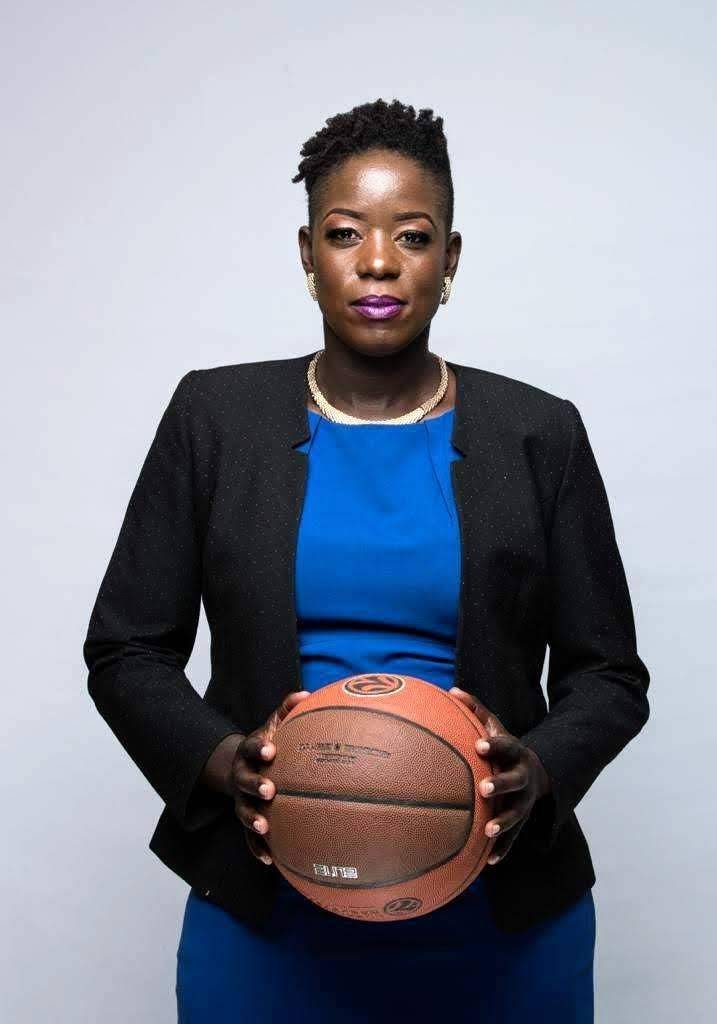African Sports Stars Are Shining Abroad But Sports Businesses Back Home Are Still In The Dark

A common thing with Odion Ighalo, Sadio Mane, Riyad Mahrez, Mohamed Salah, Victor Moses, Pierre-Emerick Aubameyang, and Thomas Partey among a handful of watchable others is that they all come from a sports industry that still has no valuation.
Asian, European and North American sports industries are valued at USD 276 Bn, USD 294 Bn, and USD 71.06 Bn respectively. To put the lack in more perspective, the United Kingdom’s sports is worth over USD 23.8 Bn and holds nearly 1 million jobs every year. Meanwhile, a compendium of 54 countries in Africa and an array of athletic talent have still not been able to produce a burgeoning sector.
One may point to a lack of research or coordination, but the colour of the bigger umbrella does not match with the continent’s culture towards back-home sports. Odion Ighalo, the first-ever Nigerian to (ceremoniously) feature on the Manchester United FC team will be pocketing a salary close to USD 4 Mn in 6 months from the English Premiership club.
However, a sports business back home is literally struggling to not close up shop. The market in Africa seemed to be sparking to life when the 2010 FIFA World Cup was hosted in South Africa, but things only seemed to have gone back to normal—or worse.
Monetizing Struggles
The first thing Cynthia Mumbo, Founder and CEO of Sports Connect Africa—a Kenya-based firm that delivers sports business solutions continent-wide—had to say was that: “The continent has had challenges in developing sports as a viable commercial industry mainly due to the cultural perception of sports”.

Indeed, sports in Africa has not really been considered as a serious contributor to national GDPs, which breeds only little investment across a disturbing number of countries on the continent. Nevertheless, South Africa and Northern Africa are an exception, because the latter is building a global reputation with its sports industry while the former does something similar but using a different approach.
Cynthia Mumbo’s business is one of the many sports-focused firms in the continent trying to weather so many storms. Most of these unfavorable climatic conditions are catalyzed by corruption and issues with upright governance. As such, the few that are venturesome enough to invest in the sector would go back on their decision to avoid funds mismanagement and unaccountability.
It is no wonder why Africa’s richest man Aliko Dangote has for long been mulling to purchase Islington-based Premier League football club Arsenal, rather than looking to his home country, Nigeria, for a local team to bolster.
The lack of finance, perhaps, is the reason many local football teams in Kenya have thrown in the towel. The Kenya (SportPesa) Premier League, too, has not been able to commercialize despite being around since 1963 and being invested in by Supersport and SportPesa.
Manifesting In Opposites?
Sports is good business. The 2010 FIFA World Cup, for instance, contributed USD 5.8 Bn to South Africa’s economy—among other things. Should people like Ighalo and Mane be able to jump the West African fence to become international superstars, means perception has a big role to play in the monetising process.
However, things seem to have taken an unexpected swerve as it is the sports betting firms that are now cashing in. Roughly 60 million Nigerians between the ages of 18 and 40 are involved in active sports betting, spending around USD 15 every day on bets. More than half of South African adults is involved in gambling on a regular basis. The problem is more pronounced in Kenya, where the government is thoroughly regulating the likes of SportPesa.
Due to the trend, betting firms from outside Africa have set up shops in the continent, while indigenous players like Nigeria’s Nairabet keep the passion controversially burning.
But pay attention to the rather sordid and ironical turn of things—sports betting thrives in Africa because of high unemployment and the presence of one of the largest youth populations in the world. Growing internet penetration, widespread use of mobile phones and the love of world-class football also play their roles.
This is somewhat disturbingly paradoxical because a well-developed sports industry can actually reduce unemployment by a lot and make good use of the athletic talent in the region. Talent, in question, is not only peculiar to football, because Kenya has the best marathoners in the world. Eliud Kipchoge can be said to be an African Ighalo of long-distance, lung-pumping, hours-long races.
The African sports potential can also be otherwise amplified by internet penetration and increased mobile phone use. So, is it safe to say the steam is coming out the wrong channel? Just.
Lucrativity Loophole
The sports business is lucrative, but only from the perspective one looks at it. It depends on what part of the sector a business operates and where it is located. If you are running a sports betting firm in Kenya, good pressing.
But if you are trying to create a brand Africans will become accustomed to watching and rooting for, good luck. If you are building a cricket or rugby-related venture in South Africa, the odds are in your favour. But if it’s a hockey brand in Kenya, you may be done before you’re started.
A similar set of factors come to form why most African support football clubs and athletes from outside the continent. Like, one would rather pay attention to the textbook analysis of Peter Drury alongside Jim Beglin than tune to listen to an African counterpart in a local league.
The potential is unarguably there, but the set of challenges aforementioned hamper the growth of the African version of the Europa League or the The Stanley Cup.
“We face several challenges, but the key one is cultural barriers whereby sports is still not taken seriously as a driver of economic development and empowerment on the continent. We have to spend time and resources educating our prospects. Secondly, Africa is a huge spread of 54 countries. With us being a startup, we have been unable to scale as much as we would like to,” Cynthia Mumbo told WeeTracker.
She continued: “Starting in an industry that is still in its infancy, (here, I mean the commercialization of sports) we face financial challenges. Our hope is that over time and with the unique and niche proposition we offer, we will be able to attract investment to enable us scale and deliver value to sports stakeholders. With the launch of the NBA Africa League, it will be interesting to see how the industry will develop. There is a greater interest on the continent now more than ever”.
Inroad For Tech
With innovation now said to be a core driver of Africa’s growth, it could perhaps help in the development and attractiveness of the continent’s sports industry. In fact, a tech-driven sports sector, as Sports Connect Africa agrees, can birth more African superstars like Ighalo.
“Looking at the demographics, over 65 percent of Africans are under the age of 35. They also spend a lot of time online and have a worldview. They follow international stars and increasingly African stars too”.
The last-known venture backing for the sports-tech industry happened at the end of July 2019. VC firm Blue Label Ventures made an unspecified investment in Mobii Systems—a Cape Town-based startup that develops custom-design electronic hardware, one which is Stratus, a video-based platform and a flagship product currently being used by Rugby South Africa.
South Africa’s Fancam Sports also raised USD 100 K last year to develop its crowd intelligence platform. But while WeeTracker went to press, the CEO, Tinus le Roux said 95 percent of Fancam’s clients are in the United States—another situation to behold for sports in the continent. However, Egypt’s Eksab, a daily sports fantasy startup, raised investment roughly a week before the commencement of the African Cup of Nations (AFCON).
While one must take a look at the location of these fund-raising ventures, the inroads for tech in African sports appear to be narrow. This can be traced back to culture, as sports itself is a way of life. The global sports tech sector attracted USD 2.5 Bn in 2018 and is predicted to reach USD 30 Bn by 2024. There are signs that African will be just a tiny part of this growth, but hopes are kept alive for now—at least from an Ighalo POV.
Featured Image of Ighalo: The National.Ae